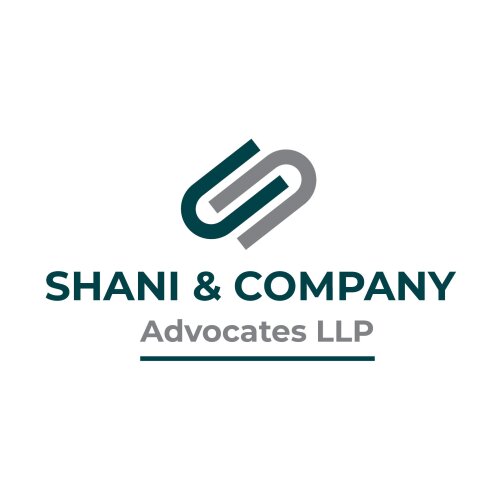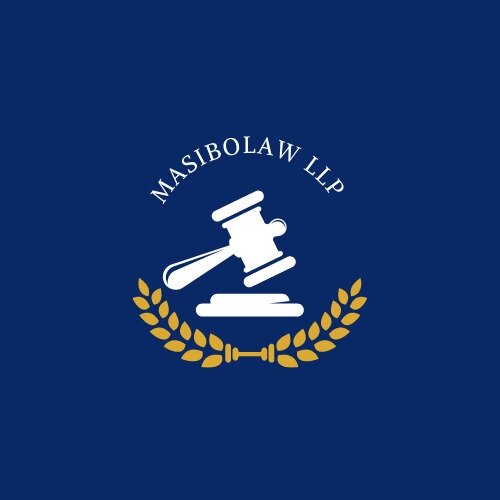Best Banking & Finance Lawyers in Nairobi
Share your needs with us, get contacted by law firms.
Free. Takes 2 min.
List of the best lawyers in Nairobi, Kenya
Legal guides written by Adroit Law LLP:
- Kenya Launches Digital Nomad Visa: A Gateway for Remote Workers
- Navigating the Payment System License Maze in Kenya
- Navigating the Complexities of Mining Licenses and Permits in Kenya: A Look into Artisanal and Large-Scale Operations
About Banking & Finance Law in Nairobi, Kenya
Banking & Finance Law in Nairobi, Kenya primarily deals with regulations and legal aspects related to banking services, financial institutions, and transactions. Nairobi, being the financial hub of Kenya, has a well-developed banking and finance sector. This field of law covers various areas such as banking regulations, loan agreements, debt recovery, financial transactions, securities, insurance law, and more.
Why You May Need a Lawyer
There are several situations where seeking legal help in Banking & Finance in Nairobi, Kenya is advisable:
- If you are starting a new financial institution or need legal assistance with licensing and regulatory compliance.
- If you are facing loan default or debt recovery issues and need guidance on legal remedies.
- When engaging in complex financial transactions, such as mergers and acquisitions, it is important to have legal support to ensure compliance and protect your interests.
- If you are facing consumer protection issues related to banking or financial services.
- When dealing with financial disputes, it is crucial to have legal representation to negotiate and resolve the matter.
Local Laws Overview
The local laws that are particularly relevant to Banking & Finance in Nairobi, Kenya include:
- The Banking Act, which regulates the establishment, operation, and supervision of banks and financial institutions.
- The Central Bank of Kenya Act, which establishes the Central Bank of Kenya, responsible for formulating and implementing monetary policies.
- The Companies Act, which governs the incorporation, management, and operations of financial institutions.
- The Capital Markets Act, which regulates securities transactions, stock exchange operations, and public offers of securities.
- The Insolvency Act, which provides a legal framework for the insolvency, bankruptcy, and winding up of financial institutions.
Frequently Asked Questions
Q: Can a bank refuse to provide me with a loan?
A: Yes, banks have the right to refuse loan applications based on their internal policies, assessment of creditworthiness, and other factors.
Q: How can I protect my personal information when using online banking services?
A: Ensure you have strong passwords, avoid sharing sensitive information online, regularly monitor your accounts for any suspicious activity, and use secure networks while accessing online banking.
Q: What are the consequences of loan default?
A: Consequences of loan default can include legal action, credit score damage, asset seizure, and difficulty in obtaining credit in the future.
Q: What rights do consumers have regarding banking services?
A: Consumers have rights to fair and non-discriminatory treatment, access to accurate information, protection of personal data, and mechanisms for complaint resolution.
Q: How can I file a complaint against a financial institution?
A: You can file a complaint with the relevant regulatory authorities such as the Central Bank of Kenya or seek legal assistance to guide you through the process.
Additional Resources
Here are some resources, governmental bodies, and organizations related to Banking & Finance in Nairobi, Kenya:
- Central Bank of Kenya - https://www.centralbank.go.ke/
- Kenya Bankers Association - https://www.kba.co.ke/
- Capital Markets Authority Kenya - https://www.cma.or.ke/
Next Steps
If you need legal assistance in Banking & Finance in Nairobi, Kenya, consider taking the following steps:
- Evaluate your specific legal needs and determine if you require assistance from a lawyer.
- Research and select a reputable law firm or lawyer specializing in Banking & Finance law.
- Contact the chosen lawyer or law firm to schedule a consultation to discuss your case.
- During the consultation, provide all relevant documents and information to the lawyer.
- Listen carefully to the lawyer's advice, ask any questions you may have, and decide whether to proceed with legal representation.
- If you choose to retain the lawyer, follow their guidance throughout the legal process and provide any requested information promptly.
Lawzana helps you find the best lawyers and law firms in Nairobi through a curated and pre-screened list of qualified legal professionals. Our platform offers rankings and detailed profiles of attorneys and law firms, allowing you to compare based on practice areas, including Banking & Finance, experience, and client feedback.
Each profile includes a description of the firm's areas of practice, client reviews, team members and partners, year of establishment, spoken languages, office locations, contact information, social media presence, and any published articles or resources. Most firms on our platform speak English and are experienced in both local and international legal matters.
Get a quote from top-rated law firms in Nairobi, Kenya — quickly, securely, and without unnecessary hassle.
Disclaimer:
The information provided on this page is for general informational purposes only and does not constitute legal advice. While we strive to ensure the accuracy and relevance of the content, legal information may change over time, and interpretations of the law can vary. You should always consult with a qualified legal professional for advice specific to your situation.
We disclaim all liability for actions taken or not taken based on the content of this page. If you believe any information is incorrect or outdated, please contact us, and we will review and update it where appropriate.
Browse banking & finance law firms by service in Nairobi, Kenya
Nairobi, Kenya Attorneys in related practice areas.

















